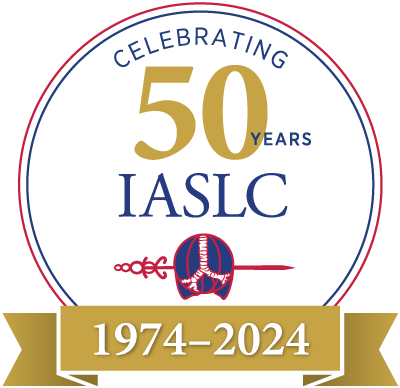
The global fight against lung cancer is at a pivotal moment. This year’s World Conference on Lung Cancer provides a unique opportunity for researchers, clinicians, policymakers, and advocates to share groundbreaking research, discuss innovative strategies, and forge new collaborations. The Risk Factors, Risk Reduction & Tobacco Control track features education sessions, a meet-the-expert session, mini oral presentations, posters, and e-posters, and promises to be incredibly informative. These discussions will be led by experts working in government agencies, volunteer organizations, and academia in high-, middle-, and low-income countries, and bring diverse perspectives from around the globe. Here is a glimpse into the themes you will find in the Risk Factors, Risk Reduction & Tobacco Control track at WCLC 2024.
Tobacco Control and Smoking Cessation: A Call to Action
Despite significant strides in tobacco control, commercial cigarette smoking remains the leading cause of lung cancer worldwide with attributable fraction ranging from 80-90%.1 The track will highlight various strategies and challenges related to smoking cessation and tobacco control, including stakeholder priorities, nicotine replacement therapy, health education, and policy interventions. These include the progress Australia is making on integrating smoking cessation into lung cancer screening, challenges with access to nicotine replacement therapy, and innovative approaches to health education among adolescents in Nigeria. Moreover, a discussion on the policy interventions in Bangladesh will offer fresh perspectives and provide valuable insights into how the scientific community can collectively push the boundaries of tobacco control and smoking cessation in developing countries.
Environmental and Occupational Hazards: Unseen Threats
Air pollution and occupational hazards are silent contributors to lung cancer, especially among people who do not smoke.2 This aspect of the track will delve into environmental and occupational risk factors such as air pollution, radon, and asbestos exposure, and their impacts on lung cancer risk. These include the impact of PM2.5 exposure and volatile organic compounds on patients diagnosed with lung cancer, cutting-edge methods for measuring outdoor air pollution and their implications for lung cancer risk assessment. Case studies from Colombia on radon exposure and from rural areas on asbestos exposure will shed light on these critical issues. In addition, exploration of a world map of air pollution and EGFR prevalence will provide an understanding of the urgent need for global action to mitigate these risks.
Epidemiology and Population Studies: Unveiling Patterns
Understanding the epidemiology of lung cancer by examining factors like household tobacco smoke, tobacco control policies, mortality trends, genetic predispositions, and disparities in incidence and survival rates is crucial for developing targeted interventions. The track will feature comprehensive studies on the impact of household tobacco smoke, the effectiveness of tobacco control policies across 48 countries, and the evolution of lung cancer mortality rates in Brazil. It will examine disparities in epidemiological characteristics between people who have smoked and those who have never smoked in China and the unique genomic landscape of lung cancer in people who have never smoked from the Women’s Health Initiative. These sessions will highlight the importance of considering genetic predispositions and sociodemographic factors in lung cancer research.

Risk Factors, Risk Reduction & Tobacco Control Track
Led by diverse experts from around the world, the Risk Factors, Risk Reduction & Tobacco Control track features education sessions, a meet-the-expert session, mini oral presentations, posters, and e-posters designed to share groundbreaking research, discuss innovative strategies, and forge new collaborations.
Clinical Innovations and Biomarkers: Pioneering Precision Medicine
Precision medicine is revolutionizing lung cancer treatment.3 The track will showcase clinical studies and research on biomarkers for lung cancer prognosis, predictive models, and the impact of genetic variations. The track will cover the association between smoking status and brain metastasis prognosis in patients with non-small cell lung cancer (NSCLC), as well as the development of predictive models for early death and metastasis. It will explore the heterogeneous germline variants in EGFR mutations in patients with lung cancer and the potential of biomarkers such as CT-based emphysema assessments. The Can-Prevent-Lung Trial on canakinumab will provide insights into novel prevention strategies. These clinical innovations promise to enhance our ability to tailor treatments to individual patients.
Socioeconomic and Lifestyle Factors: Broadening Our Perspective
Socioeconomic and lifestyle factors play a significant role in lung cancer risk and outcomes.4 The track will include discussions on the influence of education inequality, social isolation, diet, and exercise on lung cancer risk. The impact of coffee consumption, alcohol, and genetic factors like growth hormone receptor genotypes will also be explored. Understand the choices made by those who continue to smoke after a cancer diagnosis and the promising findings on GLP-1 receptor agonists in reducing lung cancer risk among patients with diabetes. These sessions will underscore the multifaceted nature of lung cancer prevention and management.
Addressing Healthcare Disparities: Towards Equitable Care
Healthcare disparities remain a significant barrier to effective lung cancer treatment.5 The track will focus on the unique challenges of healthcare access and disparities in lung cancer screening, diagnosis, and outcomes among various populations, including individuals who identify as transgender, people living with HIV, immigrants, and racial minorities. Patterns in lung cancer screening among patients with head and neck cancer and the disparities in lung cancer risk assessment will also be discussed. The sessions will emphasize ways to promote equitable care and ensure that all populations have access to life-saving interventions.
Special Populations and Comorbidities: Navigating Complexity
Lung cancer in special populations requires a nuanced approach. So too do comorbid conditions and unique risk factors, including genetic predispositions and toxic exposures. The track will explore the characteristics of NSCLC with high serum carcinogenic embryonic antigen (CEA) levels and the comorbidity profiles of patients with lung cancer diagnosis, the prevalence of pathogenic germline variants in patients with lung adenocarcinoma, the impact of World Trade Center disaster exposure, and veteran toxic exposure status. Attendees will learn about the risk factors associated with venous thromboembolism in ALK rearranged NSCLC. The sessions will highlight the need for tailored strategies in managing lung cancer among diverse patient groups.
Treatment Outcomes and Prognosis: Learning from Real-World Data
Real-world data on treatment outcomes and prognostic factors for lung cancer, including survival data, the impact of smoking, and diagnostic delays offer valuable insights for improving patient care.6 Researchers will present findings on the 3-year survival rates of patients with NSCLC from French nationwide cohorts and the impact of smoking on morbidity and early mortality post-surgery. Analysis of diagnostic delays and their impact on survival will underscore the importance of timely intervention. Discussions will include how to translate research into actionable strategies for enhancing lung cancer treatment outcomes.
Join the Conversation
Whether you are a researcher, clinician, policymaker, or advocate, your participation in the Risk Factors, Risk Reduction & Tobacco Control track sessions at WCLC 2024 is vital in shaping the future of lung cancer research and care. The track promises to be a dynamic forum for exchanging ideas, sharing breakthroughs, and fostering collaboration. Join us in unlocking new possibilities and driving progress in the fight against lung cancer. Together, we can make a difference.
References
- 1. Freedman ND, Abnet CC, Caporaso NE, et al. Impact of changing US cigarette smoking patterns on incident cancer: risks of 20 smoking-related cancers among the women and men of the NIH-AARP cohort. Int J Epidemiol. Jun 2016;45(3):846-56. doi:10.1093/ije/dyv175
- 2. Hvidtfeldt UA, Severi G, Andersen ZJ, et al. Long-term low-level ambient air pollution exposure and risk of lung cancer – A pooled analysis of 7 European cohorts. Environment International. 2021/01/01/ 2021;146:106249. doi:https://doi.org/10.1016/j.envint.2020.106249
- 3. Rolfo C, Denninghoff V. Globalization of precision medicine programs in lung cancer: a health system challenge. The Lancet Regional Health – Europe. 2024/01/01/ 2024;36:100819. doi:https://doi.org/10.1016/j.lanepe.2023.100819
- 4. Redondo-Sánchez D, Petrova D, Rodríguez-Barranco M, Fernández-Navarro P, Jiménez-Moleón JJ, Sánchez MJ. Socio-Economic Inequalities in Lung Cancer Outcomes: An Overview of Systematic Reviews. Cancers (Basel). Jan 13 2022;14(2)doi:10.3390/cancers14020398
- 5. Wisnivesky JP, Smith CB. Lung Cancer Disparities Outcomes: The Urgent Need for Narrowing Care Gaps. Journal of Clinical Oncology. 2022;40(16):1718-1720. doi:10.1200/jco.22.00321
- 6. Wang F, Xie X, Wang L, et al. Real-world data on severe lung cancer: a multicenter retrospective study. Transl Lung Cancer Res. Mar 31 2023;12(3):460-470. doi:10.21037/tlcr-23-4





